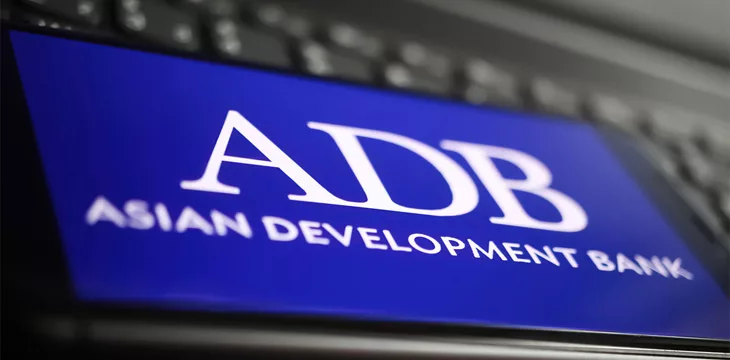|
Getting your Trinity Audio player ready...
|
The Asian Development Bank (ADB) has announced the completion of its proof-of-concept (PoC) probing into the viability of cross-border bond settlements using blockchain technology.
The ambitious project, dubbed Project Tridecagon, sought to expand the delivery versus payment (DvP) system concept to international securities transactions, notching several positives along the way. According to an ADB report, the study focused on the Association of Southeast Asian Nations (ASEAN) with the addition of China, Japan, and Korea.
Aside from government agencies, the project relied on a group of blockchain infrastructure providers, including Fujitsu (NASDAQ: FJTSF), ConsenSys, R3, and Soramitsu.
The PoC noted that relying on DvP for local securities transactions is relatively common, but integrating them in cross-border transactions poses several concerns. As a way around the challenges, the project divides a bond transaction into two parts, with the first being a foreign exchange transaction in the form of payment versus payment (PvP).
The second arm of the transaction will be the local security settlements as a DvP with security tokens minted by central securities depositories (CSDs). Experts argue that the system could reduce settlement times for international bond transactions if implemented correctly.
Researchers pointed out that relying on smart contracts can improve the system’s functionalities in the future, but regulatory issues across jurisdictions may pose cost issues.
“A replication of established functional processes in blockchain appears possible, but the potential resulting limitation of DLT functionality may not be cost-effective in the long term,” read the PoC document.
A key theme in Project Tridecagon is its interoperability across several distributed ledgers, with the trio of Corda, Hyperleder Iroha, and Hyperledger Besu participating in the PoC.
Interoperability binds it all together
Details from the PoC indicate Project Tridecagon leveraged Fujitsu’s ConnectionChain to achieve interoperability across the three different ledgers. A recent announcement reeled out the successes of ConnectionChain in connecting multiple ledgers across Southeast Asia.
Fujitsu notes that its proprietary technology can potentially reduce settlement times for securities transactions and will see myriad applications in both the distribution and manufacturing sectors. ConnectionChain relies on Hyperledger’s Cacti plugins and an “Extended Smart Contract” feature to eliminate third-party interventions.
LDNBlockchain23 VIP dinner: Showcasing real-world solution powered by blockchain

 07-02-2025
07-02-2025 





